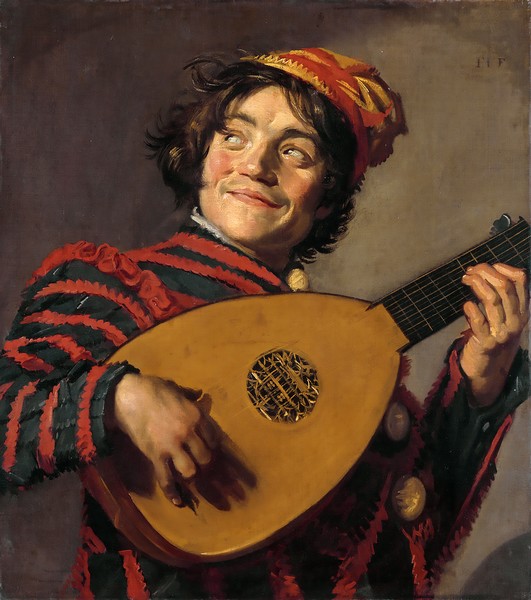The students of the ESMUC Master's Degree on Lied visit us once more year to share with us their final work of the module Genre Literature. Repertoire of the German Lied given by pianist Viviana Salisi, which is a post for Liederabend's blog; you'll find the previous works on this link. Pianist Mar Compte begins this fifth season, and tells us about Shakespeare and Amy Beach; thank you, Mar!

We are in the middle of the second act of William Shakespeare’s comedy Twelfth Night, at a moment when two of the main characters ask the fool, Feste, to sing them a song:
SIR TOBY BELCH
(giving the FOOL money) Yes, come on. Here’s sixpence for you. Let’s hear a song.
SIR ANDREW
(giving the FOOL money) Here’s something from me too. If one knight gives—
FESTE
Would you rather hear a love song or a song about the good life?
SIR TOBY BELCH
A love song, a love song.
SIR ANDREW
Yes, yes. I’m not interested in being good.
And the fool starts singing a song to the beloved that describes how to live in the present, because youth is not eternal. To stop seeking Love elsewhere, because love is now.
I wanted to write about this song because I think it is a song meant to be a song, and that makes me take a point of authenticity that is not always easy to find in the repertoire. The spontaneity and freshness that Shakespeare knew how to find with Feste, I think Beach has been able to find it in the same way with her music. Also, when I have to play it in public, I empathize a lot with the character because in a way I am also doing the same job as the fool.
The fact that it can be placed in such a specific context, helps the performer to answer many of the questions that we ask ourselves when working on a song: What happens in the poem?, Who speaks?, Is he/she alone or speaks to someone?, what has happened before the poem began?, What is happening in the present?, How is the character?... All this information we already know it thanks to Shakespeare. It facilitates the process of growth of the song and helps us to locate it with clarity, although sometimes, it must also be said that the fact of having to invent all these answers has a very interesting point as a musician.
The song, like the poem, is divided into two parts, is written in G major and under an indication of tempo Alegretto grazioso that helps to establish the light and cheerful character of the atmosphere of the song.
If we listen to it, we will see that there is a main theme that is repeated all the time. The first notes that the voice makes (b, g, e, d) will be the ones that, together with the piano, will constantly appear. Sometimes with different tones, with different characters and with a slightly changed drawing. As a pianist, I like to imagine that every time this motif appears, it is the lover one whistling to the loved one to get her attention and remind her that love is now. Also, because the voice puts lyrics to this motif (O mistress mine) is something that also helps me a lot as a pianist: being able to put specific words to the music that I play.
This song is the first one in the collection of the composer “Three Shakespeare Songs”, which as the title indicates are three songs taken from three different works by the author: O mistress mine, Take or take those lips away and Fairy Lullaby. Maybe we can not talk about a cycle because the three songs do not tell a story, but under the theme of the same author of poems, we can talk about a songbook.
Amy Beach was a pianist and composer in the late 19th and early 20th centuries. It should be emphasized that she was a woman, another reason why I have wanted to choose this song, and that she was one of the first to be able to develop a successful career in the field of music, that she developed between the United States and Europe.
The version I propose is by the English soprano Emma Kirkby with the ensemble Romantic Chamber Group of London, which I find they make a very successful version, and the voice of the singer, specialized in Renaissance and Baroque music, for my taste, gets some interesting colours and a very nice freshness.
About the author. Mar Compte is a Catalan pianist who studied at the ESMUC and is currently studying for the Master of Lied Victoria de los Ángeles, combining it by teaching music and volunteering at the Life Victoria Festival.
O mistress mine, where are you roaming?
O, stay and hear; your true love’s coming,
That can sing both high and low:
Trip no further, pretty sweeting;
Journeys end in lovers meeting,
Every wise man’s son doth know.
What is love? ’tis not hereafter;
Present mirth hath present laughter;
What’s to come is still unsure:
In delay there lies no plenty;
Then come kiss me, sweet and twenty,
Youth’s a stuff will not endure.













